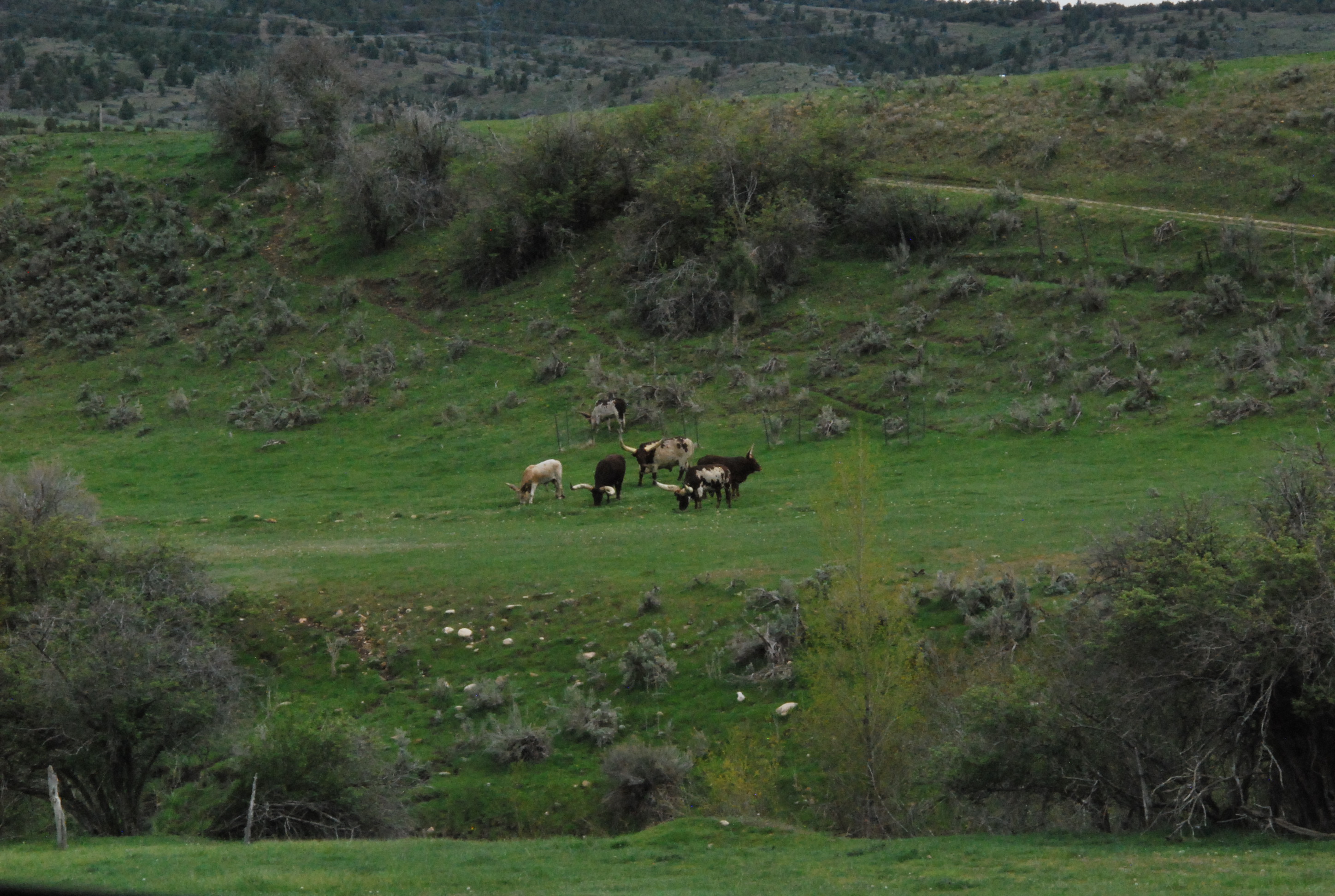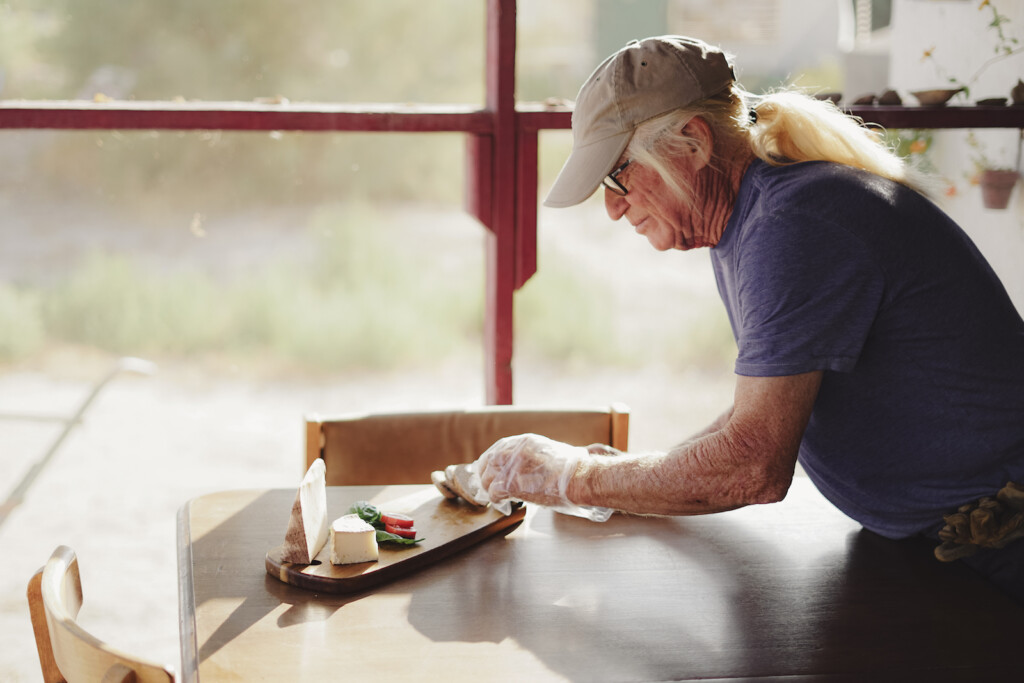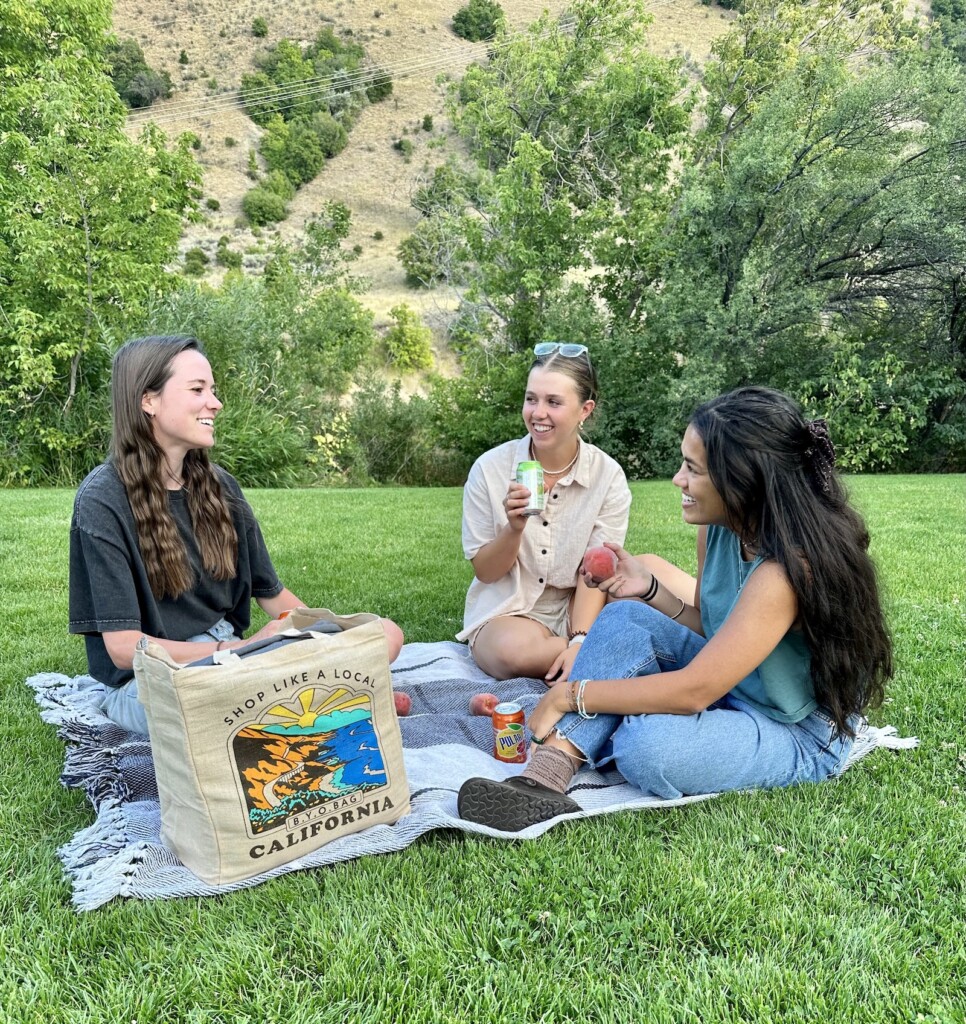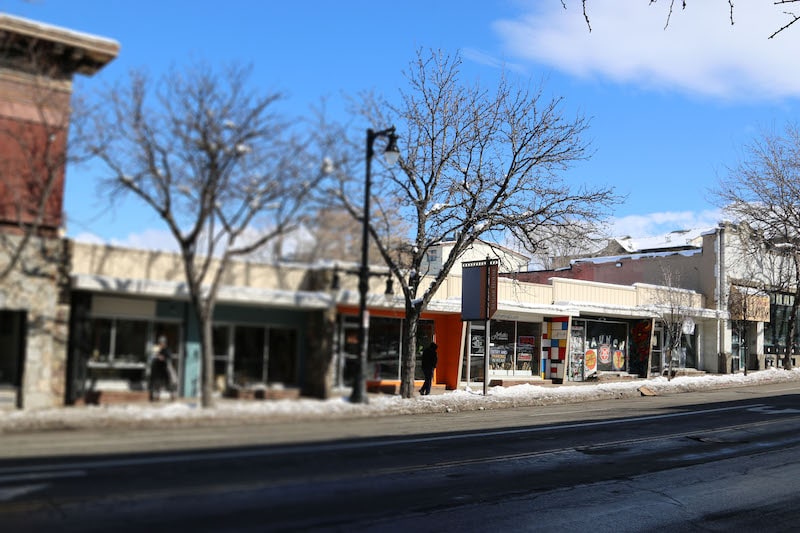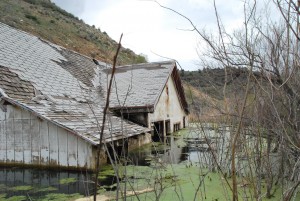
Thistle, Utah— Having driven for nearly 20 minutes in this town, the appearance could best be described as charmingly post-apocalyptic. There are many abandoned homes and former farm facilities. A few totally flooded roadside residential properties now serve as a rest stop for ducks and habitat for fish. The rains have made the pastures rich and lush, the hills are dotted with Angus cattle; and there is no sign of people. No smoking chimneys, no passing cars. With fog rolling in and crumbling edifices Thistle appears a up and coming ghost town, lovely in its dereliction.
In alignment with the apocalyptic theme, I come upon a sign that was clearly written by someone unhappy with a recent government action: “My property was deemed abandoned.” The sign belongs to long-time resident Randy (he didn’t offer his last name). The referred to action allowed the county to call the private road his father built a “public wilderness access road.” Randy said, “I would allow nearly anybody to use my road, but sometimes people would use it and party up there and leave litter. So the county, along with the Division of Natural Resources, decided to seize my property.”
Randy grew up ranching in the area. He raised alfalfa in Spanish Fork until the city decided to zone his property commercial, causing his taxes to skyrocket, forcing him to sell his pasture to developers. Besides changes to zoning laws, Randy blames the federal government for the problems ranchers have suffered. “NAFTA (the North American Free Trade Agreement) killed cattle ranching in this area. Today nobody in this area can make a living ranching. For us it’s now more of a hobby.” Randy’s “hobby” consists of some 10 African long-horned grass-fed cattle known as “Ankole-Watusi”. “We figured if we were going to have them, these are the most fun to look at,” Randy says. He also gets quite a bit of money for the horns.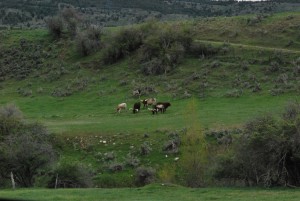
Randy works in construction. He says he’s fortunate because it is not far and he can go to Orem and Provo to find jobs. But he says that the state of Utah is, “terrible to farmers. It’s one of the worst places to try to make your living doing this. The state agencies have no respect for farmers, and are doing nothing to preserve the traditions.” Randy adds, “We come to rely on food in their grocery stores and water out of the faucet. If the government keeps this up, someday there will be neither.” Randy’s son is a rancher in Colorado, where he says the state and local governments treat farmers much better than they do in Utah.

